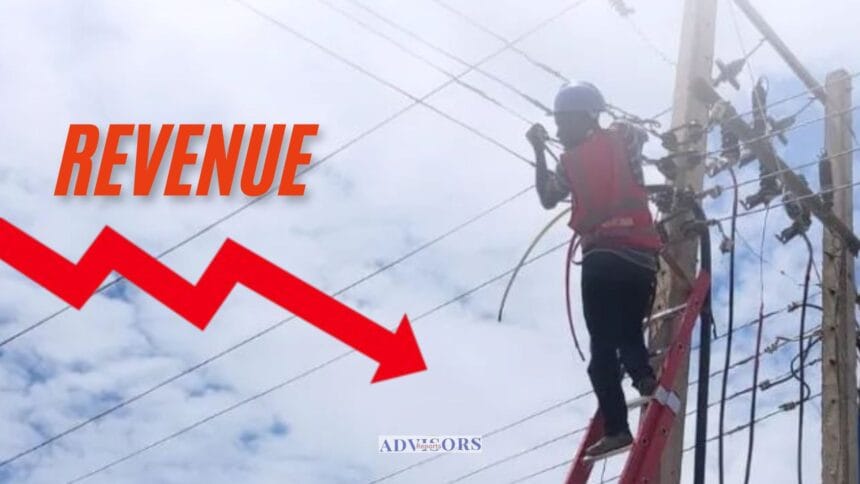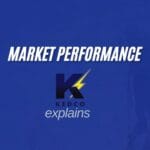... as Ikeja Electric leads, records 96.75% in collection efficiency
… Kano DisCo underperforms with 20.83% recovery efficiency, collects ₦3.07bn out of ₦14.95bn billed
Oredola Adeola
In September 2024, Nigeria’s electricity distribution companies (DisCos) reported a revenue shortfall of ₦54.22 billion, attributed to inefficiencies in collection.
This was revealed in the Commercial Performance Report for Distribution Companies (DisCos) for September 2024, released by the Nigerian Electricity Regulatory Commission (NERC) and analyzed by Advisors Reports.
The revenue collection efficiency for September 2024 of DisCos, based on the report, showed that out of total billings of ₦225.80 billion, the DisCos collectively managed to collect ₦171.58 billion, reflecting a collection efficiency of 75.99%, which marks a 4.92% decline compared to August 2024.
In the data analysed by Advisors Reports, the revenue recovery efficiency of the DisCos, in the month under review, stood at 73.45%, as actual average collections of ₦85.01 per kilowatt-hour (kWh) fell short of the ₦115.74/kWh allowable tariff.
Despite the overall decline, Ikeja Electric emerged as the best-performing DisCo, achieving a collection efficiency of 96.75%—though this was a drop of 7.26% compared to August.
The company collected ₦35.20 billion out of ₦36.38 billion billed, with a revenue recovery efficiency of 88.55%, attaining ₦101.57/kWh against an allowable tariff of ₦114.70/kWh.
Eko DisCo followed closely with 81.40% collection efficiency, slightly improving by 1.58% compared to the previous month.
The DisCo collected ₦31.16 billion out of ₦35.28 billion billed, achieving a revenue recovery efficiency of 88.36% at ₦104.56/kWh compared to the allowable ₦118.33/kWh.
Abuja DisCo recorded a slight improvement in collection efficiency, achieving 81.35%, up by 0.71% from the previous month.
It collected ₦28.28 billion from a total billing of ₦43.77 billion, achieving a revenue recovery efficiency of 83.15% at ₦97.54/kWh, compared to its allowable tariff of ₦117.31/kWh.
Ibadan DisCo showed significant improvement, with collection efficiency increasing by 8.06% to 84.24%, as it collected ₦21.99 billion from ₦26.10 billion billed.
However, its recovery efficiency stood at 72.18%, with an average collection of ₦84.04/kWh compared to the allowable tariff of ₦116.43/kWh.
Benin DisCo recorded 82.46% collection efficiency, collecting ₦15.22 billion from billings of ₦18.45 billion, but achieved a recovery efficiency of only 67.29%.
Aba DisCo achieved a revenue recovery efficiency of 85.42% having achieved N83.29 per kilo Watts Hour, despite N97.50/kWh of Allowable average tariff for the month in view.
The Disco recorded a collection efficiency of 71.57% having collected N1.43 billion revenue out of a total of N1.99billion for the month in view.
In contrast, some DisCos struggled to achieve meaningful collection rates.
While Yola DisCo, which recorded a 36.71% collection efficiency, collected ₦1.48 billion out of ₦4.04 billion billed, and achieved a recovery efficiency of 47.35%, with ₦56.63/kWh collected against ₦119.00/kWh allowable tariff.
Jos DisCo reported a collection efficiency of 43.49%, a drop of 7.20%, collecting just ₦5.06 billion out of ₦11.63 billion billed.
Its recovery efficiency was 42.41%, with an average collection of ₦49.07/kWh against an allowable tariff of ₦115.70/kWh.
Kaduna DisCo fared slightly better, with a collection efficiency of 53.73%, down by 3.43% from August.
The DisCo collected ₦4.42 billion out of ₦8.22 billion billed but achieved a low recovery efficiency of 35.28%, with an average collection of ₦39.86/kWh compared to its allowable ₦113.00/kWh.
Kano DisCo underperformed in the period under review as it collected ₦3.07 billion from billings of ₦14.95 billion, achieving a recovery efficiency of 20.83% with an average collection of ₦24.14/kWh against ₦115.89/kWh allowable tariff.
The DisCo recorded one of lowest performances, with a collection efficiency of just 20.56%, down by a staggering 37.69%.
Advisors Reports confirmed that the mixed performance underscored the persistent challenges facing Nigeria’s electricity distribution sector, including inefficiencies in revenue recovery, poor payment compliance, and a significant gap between allowable tariffs and actual collections.




